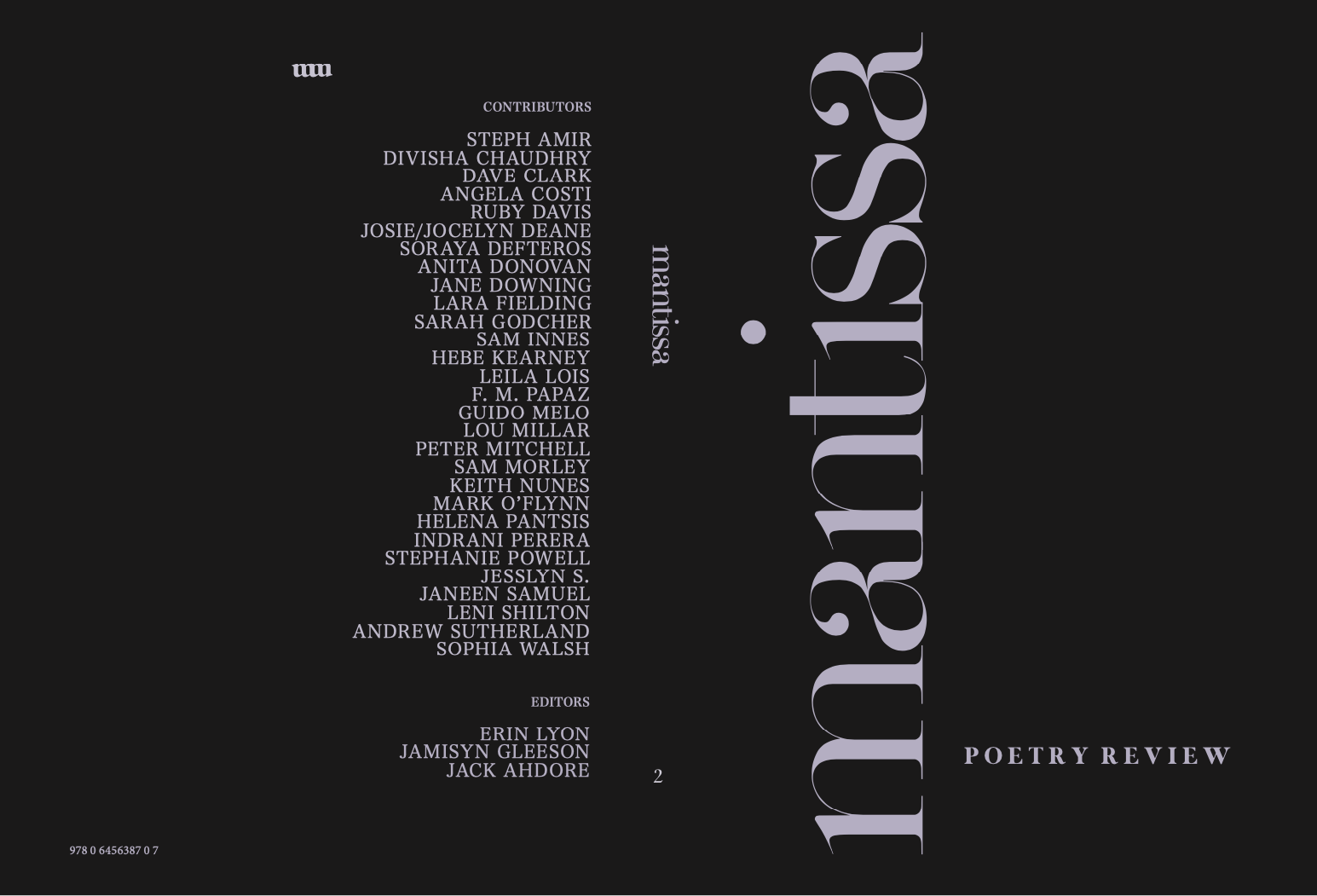Issue II — on the prefix ‘re-’
From the Editorial:
Experimental approaches to writing have often been used to tender new space in poetry — a tactic often flirted with to swerve the poetic patternings otherwise occupied by the genre’s more traditional voices (even if inadvertently so). As we toy with and reprise these existing forms, such movement it is then to give into the thing’s reconstruction, to temporalisation and reflection.
In Mantissa Poetry Review’s first issue, the intention was to embrace poetry in all of its delicious mess. Our themeless debut set out to give voice to all that simply ‘is’, to observation, to words left unsaid and made real and whole again on the page. But as we pestle and progress towards this second publication, we make return to these ‘messes’ as recipes; poems informed through their construction. The decision to theme this Mantissa was an assured one. Much like the curiosity of a poem’s patternings or ingredients, the theme itself is decidedly elemental / morphological in that it offers only a single slice of a wider image.
We sought ‘re-’ as an opposition: to make anew, an undoing, a turning back or an echo. It can be transitional or backwards, cyclical or something altogether different than before. Mantissa II offers poems that explore ‘re-’ not necessarily through words that use the prefix alone, but poetry that explores ideas constructed through the prefix and its role as an element that forms meaning.
Think ‘revolve’, ‘reproduce’ and ‘replete’ as examples. How might these poets (re)create through each or one of these words? What do ‘replete’ and ‘reproduce’ have in common? Is poetry already an act of rebuilding, reconstructing or reflecting? Can form influence this? — Perhaps where collage is to recover, a sestina illustrates restraint. These recipes, reflections, remembrances of Mantissa’s second issue each challenge and expand upon the multiplicity of ‘re-’ and its function.
A Mantissa issue of this theme offers a particularly apt space for diversity and interpretation. However even across these varied voices / poems there are harmonies spoken, crooning clearer with every second, third, and continued reading. Much like a bricolage of sorts, these independent pieces surrender to memory, to stored pockets or reimagings of self.
It is to this reader, that I leave these poems to you. Once again, I am so delighted to share with you these thoughtful creations. I hope you enjoy reading and revisiting them as much as I have.
— Erin Lyon, Founding Editor
YOUR COPY HERE
•
YOUR COPY HERE •



